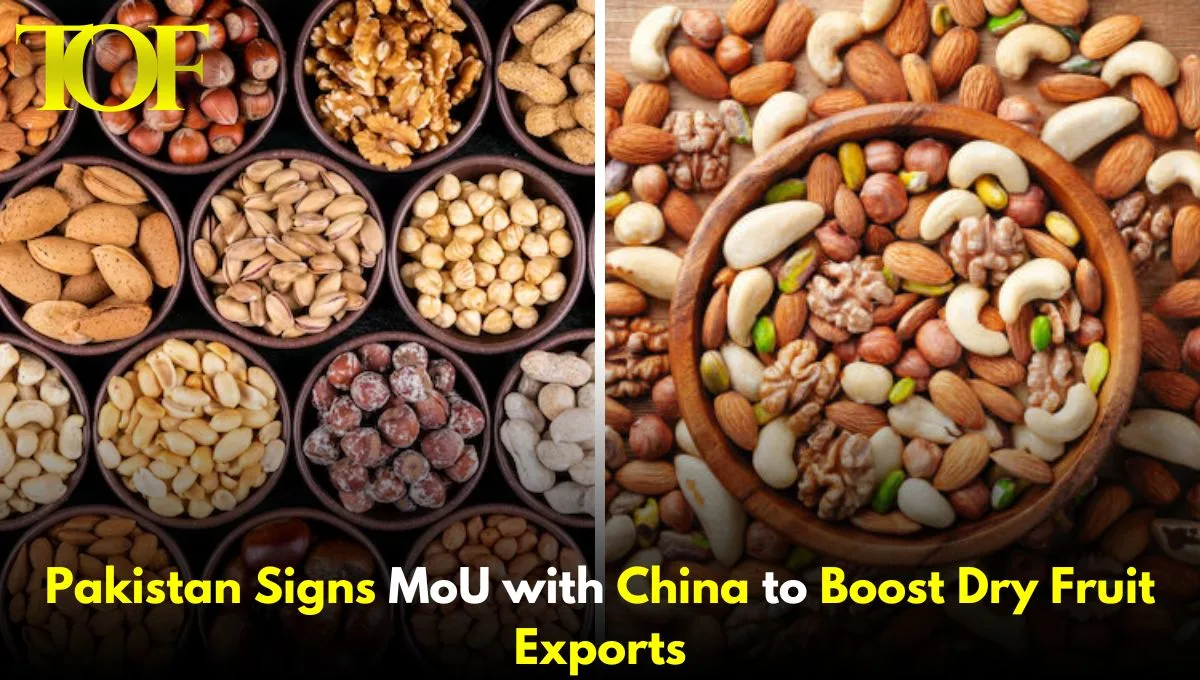Pakistan has signed a Memorandum of Understanding (MoU) with one of China’s leading companies to enhance the value addition and export of dry fruits. The collaboration is expected to increase the export capabilities of Pakistan while addressing the increased demand for premium quality dry fruits in China.
This cooperation will pave a landmark step toward enabling the agricultural exports of Pakistan to enter the China market. Value addition, through such a collaboration, is expected to give new markets abroad to Pakistan and subsequently better economic benefits.
In this regard, economies as a whole will be changed and the main beneficiary will be South Waziristan as the region is an arid district and the area is valued for its dry fruit production. Generally, the establishment of such projects will provide highly effective opportunities for employment for locals and promote economic stability in the region along with sustainable development.
Therefore, it will be focusing on both the improvement in the quality of dry fruits and optimal packaging, branding, and distribution at international standards. These can help improve the international competitiveness of dry fruits from Pakistan, hence making them more acceptable and attractive to global buyers.
To the Pakistani government, this cooperation is regarded as a significant trigger for wider economic development. With the improvement of the agricultural sector and increased income generation for farmers through value-added products, the MoU is likely to provide significant input into overall economic growth in the country.
According to both parties, there was a sense of optimism about the long-term benefits of this deal. The Chinese company involved in the joint venture has agreed to share high-tech machinery and modern ways of processing and preserving dry fruits, which would leave no room for anything less than international standards in the exports of Pakistan.
Speaking on the occasion, a government representative said, “This MoU marks a significant milestone in our efforts to enhance exports in agriculture. Leverage the advanced technologies and reach into the China market will pave new avenues for the local farmers of Pakistan.”
This deal also supports Pakistan’s general objective of diversification of its export portfolio, reduction of trade imbalances, and strengthening of economic ties with China. Collaboration in the coming time would be a natural progression, further reinforcing strategic economic partnership between the two countries, since China is still among the major trading partners for Pakistan.
This strategy aims to promote South Waziristan as the primary dry fruit production area, thus upgrading the economic situation in the region, where most of the people usually face a crisis. Providing the local community with an opportunity to farm profitable agriculture ventures is sure to play a fundamental role in improving the living standards of people and reducing poverty.
This MoU will be supposed to lift the revenue from the export sectors of Pakistan to a very high level. Pakistan is going to present its dry fruits, high in value-added, thus positioning itself as a competitive player in the global market. If this business flourishes, then further collaboration of the same type will be seen in the other sectors, and other areas of the country as well.
The package also signifies China’s desire to maintain economic growth in neighboring countries based on mutually beneficial cooperation. For Pakistan, this package is a step towards the goal of a sustainable and diversified export economy.
At a time when the world has learned that Pakistan and China are reportedly strengthening their economic and trade relations, this MoU for the export of dry fruits is testimony to the shared vision of growth and development the two nations have. The future years would prove to be a rather extensive influence of this partnership, but with the very promising outlook it promises, prima facie from this alliance comes across as a promising future of agricultural exports from Pakistan and regional development.
To Read More: Finance

